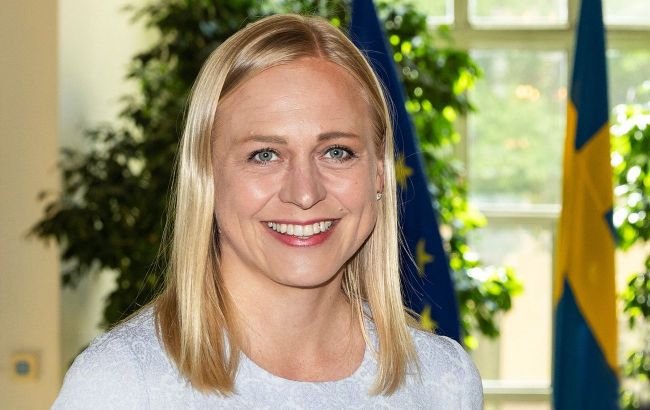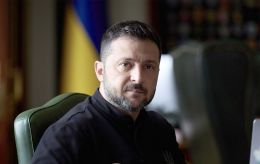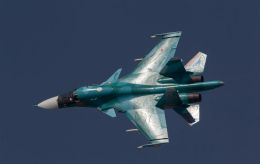Finnish Foreign Minister: 'It's not up to us to impose any conditions on Ukraine'
 Elina Valtonen, Minister of Foreign Affairs of Finland (Photo: Getty Images)
Elina Valtonen, Minister of Foreign Affairs of Finland (Photo: Getty Images)
In an interview with RBC-Ukraine, Finnish Foreign Minister Elina Valtonen discussed Ukraine's potential accession to NATO after the war, drawing parallels and distinctions between the Ukrainian and Finnish paths to the Alliance. She also touched on the West's concerns about escalation, the "window of opportunities" for Ukraine, and Finland's historical memory regarding resistance to Russian-Soviet aggression.
Starting with the recent North Atlantic Alliance summit, taking place on July 11-12, Elina Valtonen is rather satisfied with the outcomes, despite a pessimistic reaction in Ukraine.
"I think the summit sent a very clear message of continued and unwavering support to Ukraine. Ukraine will become a NATO member. There was a strong commitment for that. And obviously, in the short and medium term, the most important thing is that the alliance, and obviously the entire West, will keep on supporting Ukraine increasingly. Not only militarily, which, of course, is the most important, but also in aiding Ukraine to meet those conditions which have to be met on the day when Ukraine becomes a NATO member," she comments.
The head of Finland's foreign affairs remains optimistic about Ukraine's prospects for NATO membership. When asked about the possibility of Ukraine joining NATO soon after victory in the war, she responds, "We hope that it will be possible."
Finland itself is a newcomer to the Alliance, taking less than a year to join. Historically accustomed to neutrality, the Finns quickly reassessed their security situation after the full-scale Russian invasion of Ukraine began. Valtonen says that her country didn't directly feel the threat of Russian invasion, but the potential danger had existed for decades, given that the Finnish-Russian border spans over a thousand kilometers.
"I have been personally always in favor of Finland joining NATO. My party has been as well, officially for 20 years. But large majority of the people didn't feel the need to join NATO because we felt that, well, we have been able to defend ourselves by ourselves in the past as well. And since we had always invested into our own defense, people didn't think that it was necessary. But it really started to change last year when Vladimir Putin said that NATO should not enlarge itself at all anymore," says Valtonen.

Finnish Minister of Foreign Affairs Elina Valtonen and NATO Secretary-General Jens Stoltenberg (Photo: nato.int)
She adds that the decisive moment in changing the Finnish people's attitudes toward NATO was the night of Russia's February invasion of Ukraine. According to her, appeals for Finland's quick accession to the Alliance from Ukrainians certainly make sense, but Valtonen emphasizes that there are differences between our countries, starting from Finland's century-long independence and historically closer cooperation with NATO compared to Ukraine.
At the Vilnius summit, remarks by UK Defense Minister Ben Wallace garnered significant attention, as he stated that the West would prefer more gratitude from Ukraine for the assistance provided. The Finnish Foreign Minister comments on the situation plainly, "Aiding Ukraine is not charity."
"Ukraine is fighting not only for its own freedom and territorial integrity but also the liberty of the entire world," she says.
Unlike many European politicians, Valtonen is very clear, albeit diplomatic, about Russia and concerns regarding escalation.
"I think the West needs to understand, and increasingly we have done so, that the escalation if there is any, it's something that Russia decides on. And no action that we take here is causing any escalation, and especially not making any escalation justifiable. But personally I think the Finnish position is that Russia is solely itself responsible for her actions, and they do not comply with international law, and it's them who are engaged in these horrendous actions and these atrocities. So we in the West should not take any responsibility for that. We, of course, are responsible for our own actions, but there's nothing that justifies Russians moves in the past months or years in this direction," says the Finnish Foreign Minister.
"We have tried to engage Russia, especially in the past 20 years, into all sorts of cooperation. There have been so many attempts on the political level but obviously also on the level of trade and economy and well – what has this led to? It's not like we could prevent Russia from first taking Crimea and then invading Ukraine," she adds.
 Finnish soldiers during the battle with Soviet occupiers, December 1939 (Photo: Getty Images)
Finnish soldiers during the battle with Soviet occupiers, December 1939 (Photo: Getty Images)
Like Ukraine, Finland has experience in combating Russian, then Soviet aggression. Through certain concessions, Finland managed to defend its independence against significantly superior Soviet forces during the 1939-40 war. According to Valtonen, the Finnish people still preserve historical memories of those events, and it influences their unquestionable support for Ukraine in its current confrontation with Russia.
"In contrast to many other countries, our independence day is not a huge festival where people go out and party and celebrate. It's more of a reckoning of the past and quiet remembrance of all the victims of the wars and all the horrible memories which we have in our family history. I'm pretty sure that this own experience of ours and obviously also having the border with Russia, which basically has meant that there's always been this looming threat over the decades that people can relate with Ukraine very, very well. And this, of course, is something that can also translate into our unwavering support for Ukraine," says the Finnish Minister of Foreign Affairs.
In the Ukrainian-Russian war, there can be no compromises in favor of the occupiers - this sentiment is shared by both the Ukrainian government and society. When asked by RBC-Ukraine to comment on numerous international "peace initiatives" that call for mutual "compromises," Valtonen responds unequivocally, "It's not up to us to impose any conditions on Ukraine. Ukraine deserves a just and sustainable peace and Ukraine alone can take decisions on negotiations, their preconditions, and their outcome."

